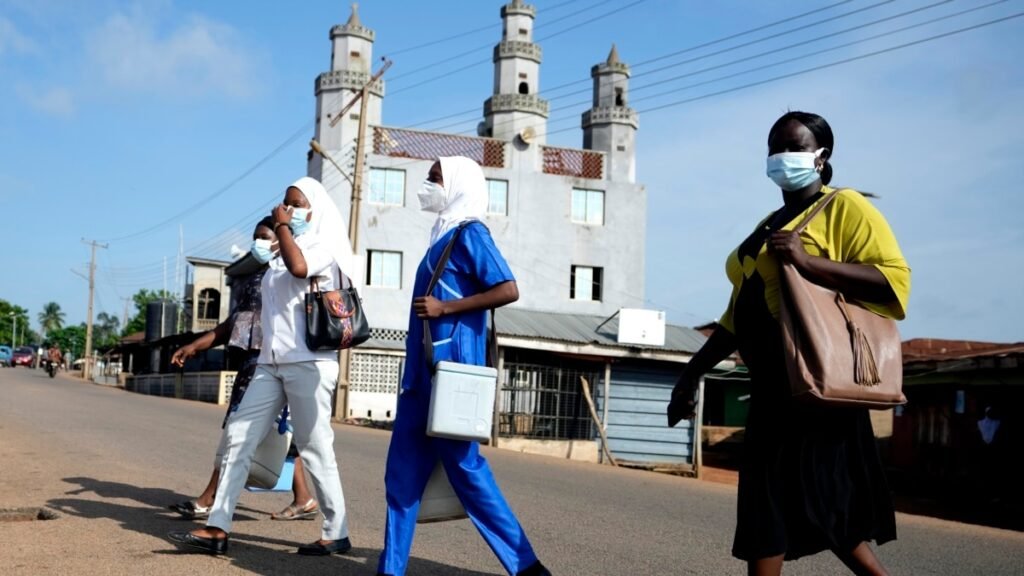Abuja —
Hundreds of people gathered in Abuja, Nigeria, for the 2024 Childhood Cancer Awareness Walk to raise awareness and support for childhood cancer. Despite advances in cancer treatment, children in Nigeria face high costs and delays in diagnosis, and this walk aims to address this issue.
Titilayo Adewumi participated in the walk with his 13-year-old son, Shittu, who was diagnosed with leukemia at the age of five. With support from the Okapi Children’s Cancer Foundation, Shittu is now cancer-free.
Adewumi talks about the tremendous burden her son’s cancer diagnosis has placed on her family.
“I had to quit my job for about four or five years to focus on him,” she said. “We ran out of cash and had no money. That’s when the okapi came to visit us… I was so excited when the doctor told me I didn’t have cancer, I I was so happy because it wasn’t easy to jump onto the roof and want to go back.”
Among the walkers was Izuyor Tobi. He brought his daughter, Hope, who had battled neuroblastoma. Treatment costs nearly depleted the family’s finances until Okapi intervened. Today, Hope is healthy.
Tobi believes that spreading awareness about childhood cancer saves lives.
“If it wasn’t for the Okapi Children’s Cancer Foundation, I don’t think my daughter would still be alive…What I’m doing is telling people what the Okapi Children’s Cancer Foundation did for my daughter. It’s about creating more awareness,” he said.
The World Health Organization (WHO) estimates that 80% of childhood cancers occur in low-income countries like Nigeria, where many cases are undiagnosed or detected late.
Ifeoma Ezeukwu, a pediatric oncologist at the Federal Medical Center, explained the barriers to treatment.
“Ignorance is also a barrier,” she says. “I’ve met many people who say they didn’t know their children could get cancer. … Unlike cancer in adults, early detection is the key to survival in childhood cancers. Children have a good prognosis once cancer is detected.”If cancer is detected early, it can be cured. ”
Kemi Adekanye founded the Okapi Childhood Cancer Foundation in 2017 to mobilize community awareness and support. With funding from friends and family, the foundation has helped more than 200 children receive treatment, despite costs starting at $180.
Adekanye said they are focused on influencing government action on childhood cancer.
“As of today, there is no support provided to children fighting cancer, so we need to help pay for treatment for children fighting cancer and provide hospitals with support so that people don’t have to travel far. We hope that the government will intervene in terms of better facilities for oncology centers,” she said.
Health policy analyst Ejike Oji called for systemic reforms across Nigeria to ease the burden on families.
“The government should establish specialized pediatric oncology wards across the country to provide a training ground for medical professionals to ensure they have good skills in diagnosing and treating childhood cancers,” he said. “If you look at cancer from diagnosis to treatment, it costs a lot of money. Radiation therapy is one of the most expensive, and most families can’t afford it.”
The large number of participants at the 8th Annual Pediatric Cancer Awareness Walk, Bridging the Gap, demonstrated the power of community mobilization.
Nigerians are advocating for better healthcare, early diagnosis and family support so no child faces cancer alone.

